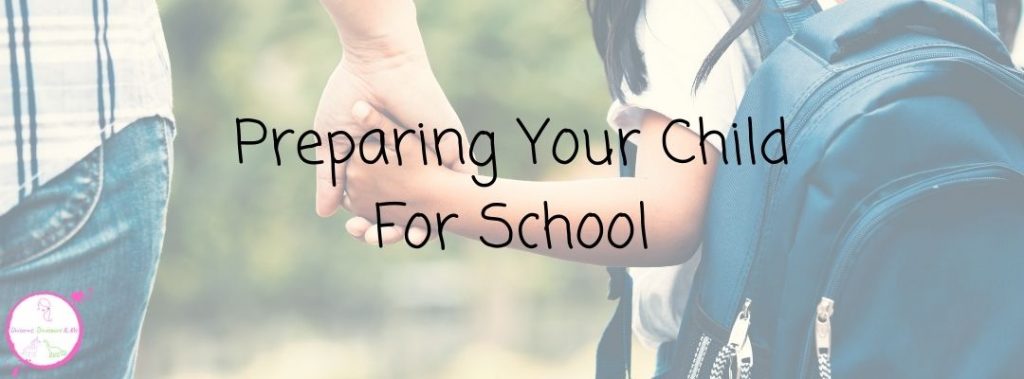Starting school is a huge milestone in any parent and child’s life. If it is your first or only child starting school, it can be a hugely overwhelming experience. Similarly, if your child has extra needs then it can be an incredibly daunting time. So apart from submitting the application, when should you start preparing your child for school?
Kickstarting with Kindergarten
Many parents are understandably concerned about ensuring their child is fully prepared for kindergarten and their early school years. While there are numerous resources available to help ease this transition, enrolling your child in a reputable preschool program can provide a strong foundation. For example preschool programs in Canton, MD, can introduce your child to a structured learning environment, fostering essential social and emotional skills that will benefit them greatly as they embark on their academic journey.
How to choose a school
One of the first things you are going to start thinking about when preparing your child for school is choosing the right school for them to attend. Remember, you need to apply for a school place and you are not guaranteed to get a space at the one that is closest to you or that is your first choice.
When selecting a school, ideally you want to visit it first to get a feel for what it’s like and to meet some of the staff, if your child has extra needs then make sure you meet the SENDCo (special educational needs and disabilities coordinator) as you will be in touch with them a lot. Contact the schools you are thinking of or look at their websites to see if they are having any open days or evenings. If you can visit during a school day then that is even better, schools are completely different when there are no pupils there and I believe you get a much better idea of what a school is like and if it will suit your child when you experience it in its normal state.
When you are visiting, don’t forget to ask questions. If this is your first child and it’s all new to you then have a read of these questions you should be asking.
What to do after you’ve sent in the application
Submitting the application for a school that makes good use of education consulting to ensure excellence, provides excellent learning environments, and you think will be a good fit for your child is only the first step. There is still a lot you can do to prepare your child for school before you even think about getting uniforms and equipment together and the earlier you start, the better. You might think that learning to count to ten or write their name are important skills to learn before they get there but there are far more important things that you need to concentrate on first.

When your child starts school there are likely to be up to 30 children in the class with one teacher and a couple of teaching assistants. Imagine if all 30 children need help putting on their coats and shoes, getting changed for pe or needing help to go to the toilet. The staff will never have time to do anything else! Spend time teaching your children these valuable self-care skills, not only will it make the teacher’s life easier but it will mean your child will benefit too. They will have a great sense of pride in being able to do things for themselves, you will promote their independence and more importantly for them, it will maximise their playtime because they won’t need to wait in a queue at break time to get help.
Another important area to focus on is social skills. This is particularly important if your child is an only child or hasn’t attended pre-school as they won’t be used to mixing with other children. Before they start school, your child will need to know how to share, how to take turns and how to empathise with others. There are a number of simple ways to help your child develop social skills which will make the adjustment to school far easier for them.
Equipping your child or The Great Shopping Trip!
Once you know which school your child will be going to you will be sent a welcome pack. This will be packed full of information to help you in preparing your child for school so take your time to go through it all a few times and digest it. There will be things like general information such as lists of staff, who to contact for different scenarios, what things are planned for the year, a huge selection of forms and a list of what you need to provide your child with. Essentially this will be a school uniform, a pe kit, a water bottle and not much else. If you are in England then your child will be entitled to free school meals (known as Universal Infant Free School Meals or UIFSM) until the end of year two (information correct at time of publishing) so they won’t even need a lunchbox.
I would advise making sure that you have enough uniform for an entire week plus a couple of spares so that you don’t have to keep washing it during the week. In reception, there will be a lot of messy activities such as painting, mud kitchens and just generally spilling their lunch so make sure you have spares and don’t be shocked if they come home filthy every day. To me, that is a clear sign that they have got stuck in and enjoyed themselves. Having spares is also handy if they come home wearing someone else’s clothes after they’ve had pe, the Dinosaur has been known to come home in a shirt that was 2 sizes too big and a pair of trousers that were a size too small before!
You will likely need:

- Shirts or polo shirts. I would get polo shirts as they don’t need to worry about the buttons. I’d also get a minimum of 5.
- Jumper or cardigan. Some schools just specify a colour, while others suggest that it has the school logo on it. I would get two or three of these as they probably won’t wear them much when they are in school so they can usually get away with wearing the same one two days in a row.
- Bottoms. This will be either trousers or shorts for boys and trousers or skirts for girls. Again, I’d make sure you get a minimum of 5 so they can wear fresh every day.
- Socks or tights. Again go for 5 pairs.
- Black school shoes. Go for velcro or zip fastenings so that your child can easily do them up by themselves. Places like John Lewis and Clarks let you book an appointment for a shoe fitting which means you don’t need to queue for hours!
- A coat. Make sure it is waterproof because you will be amazed at the number of times you have glorious weather all day but torrential rain during the school run.
- A water bottle.
- T-shirt and shorts for pe. This will usually go to school on the first day and then not come home again until Christmas.
- Plimsolls/Daps. These will join the pe kit and not be seen again until Christmas.
- PE bag. Will come home at Christmas with a balled-up pe kit stuffed in it and possibly a selection of random items.
- Name labels and stamps. You will need to label EVERYTHING, and I mean everything. These days, it is really easy to get it all done. I use a Stamptastic for clothes and bags and Name it Labels for things like shoes, water bottles and lunchboxes. These two products make a long and laborious chore and a quick and easy job.
- A drawer unit. This will not be on the list from school but for me, it is an absolute essential. I got a 5-drawer plastic unit from B & Q and on Sunday I fill it with uniform and underwear for the week ahead. In the morning, I wake the children up and while I am getting breakfast ready and making sure that all the bags and other things we need to take are by the door ready, they can get themselves dressed. We have never once had the drama of being unable to find their clothes. On top, I have two baskets, one for spare socks, pants and tights and one for hair accessories and brushes.
Of course, you may want to help your child ‘get ahead’ academically and A Jar Full of Moonbeams has some great suggestions for maths resources you can easily use at home.
Preparing yourself for your child starting school
Brace yourself, it is an extremely emotional time when your child starts school so knowing what to expect can make the transition easier for both of you. In all likelihood, there will be tears and emotions all over the place and that’s just you! Your child on the other hand will most likely be fine. Now I’m not saying that every child will happily skip to school without a backwards glance but the vast majority will. You will likely spend the rest of the morning worrying about them: are they ok, have they found the toilets, are they making friends, are they joining in, are they scared, are they wondering why you left them there. Don’t worry, this is completely normal and it doesn’t matter whether this is your first, second, third or more child, they are still your baby and they will always look so tiny compared to the other children.

The other thing that you need to prepare yourself for especially if you work and struggle for childcare is the phased start. Virtually all primary schools will start your child off gradually for the first few weeks before they start doing full days. My child’s school does a 2-week induction. In week 1 they go in half an hour after the rest of the school and finish before lunch, in week 2 they go in half an hour after the rest of the school and finish straight after lunch, week 3 they start and finish at the same time as the rest of the school. All schools do these first few weeks differently so make sure you check well in advance if you are working because your annual leave will likely take a hammering.
The final thing that you need to prepare yourself for is the tiredness of your child! Even if they have been in nursery and pre-school prior to starting school, they will still be exhausted. School really takes it out of them. This was the thing that surprised me most when my eldest started school. She had been going to nursery 4 days a week from the age of 9 months and most days was there from around 8 am to 5 pm so I was completely unprepared for just how tired she would be. School is a far more tiring experience than preschool, mainly because they are now not only physically tired but mentally tired as well.
What are your tips for preparing your child for school?




Pingback: Week 19 - ALL Chemotherapy - Unicorns, Dinosaurs & Me